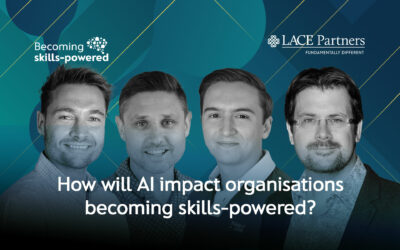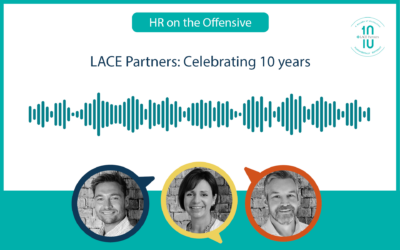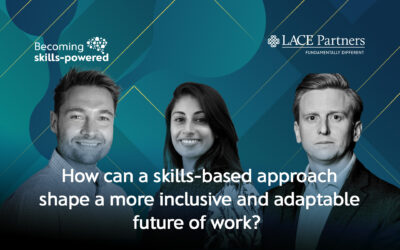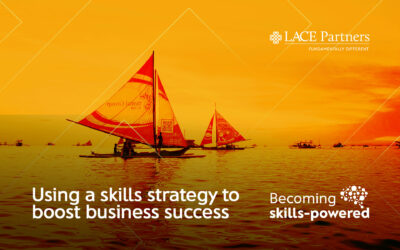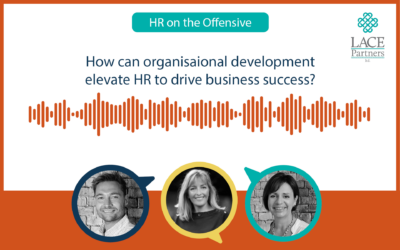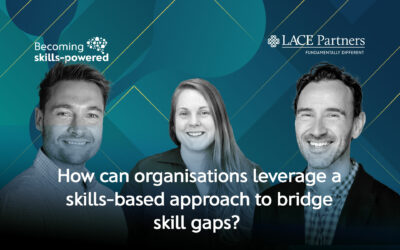What better way to discuss the challenges in the talent space with thought leaders and senior HR professionals than at an exclusive dinner? In February 2023, we did just that by hosting an invite-only dinner to talk all things talent with a laser sharp focus on current and future challenges. Here’s what we learned…
The shifting talent crosswinds
Three years into the third decade of the 21st century and the world of talent acquisition and management looks very different.
Think of the seismic changes we’ve undergone over recent years – shifting geopolitical pressures on workers, Brexit-induced barriers to free movement impeding easy access to talent, constantly ratcheting competition for scarce talent, global economic uncertainty, huge advances in digital automation and a generation-defining global pandemic.
That’s a lot to process and it’s inevitable that the approach to talent, learning and skills strategy has had to fundamentally shift along with these crosswinds.
Rather than relying on small tweaks then, HR leaders need to fully embrace next-gen tools and frameworks to unlock talent agility. No industry sector or organisation is immune to the need for these fundamental changes.
We’re seeing this with leading organisations already rapidly responding by totally reimagining their approach to talent, learning and future-proofing their strategies. It’s the only way to remain competitive and thrive in an era of prolonged uncertainty.
The decreasing half-life of skills
In an age of rapid digital acceleration, the market value of skills is decreasing faster. The World Economic Forum says that the life span of your workforce’s skill set will be worth half as much as today in five years time.
Let’s look further ahead – ten years from now maybe only around 25% of existing skills and knowledge will be useful. The roles we need are firmly in the rapidly transformative space of the 21st
This means reskilling over and over again in a way that can match the pace of technological advances. Jobs and skills are changing at such a rapid pace that there is an urgent and unavoidable need to update skills across every sector.
By supporting the workforce to adapt, flex, grow and learn you can make sure that their skills remain useful far into the future. Right now, estimates say that more than a billion people across the world will need to be reskilled by 2030.
Sector specific challenges – the pharma industry
Time waits for no one and progress must be constant across all sectors. For example, big names in the pharmacy sector faces steep competition for scarce scientific R&D talent. The rise of artificial intelligence, automation and digitisation is propagating this competition, meaning that it’s difficult to even identify the skills needed.
Smaller companies face different challenges and have the advantage of flexibility. Unlike pharma behemoths like Astra Zeneca and GSK, smaller organisations can be far more agile when dealing with the changes that circumstances demand. This allows for more flexibility in sourcing talent and ensuring skills are kept relevant.
A study from the University of Oxford suggests that around 50% of all jobs will become something fundamentally different over the next 25 years. If we look back just 15 years, we can see that all kind of roles simply didn’t exist – content creator anyone? App developer? Uber driver? Influencer? Even social media manager.
One of the biggest challenges facing every business is how to accurately predict want the world of work will look like in another 15 years. Many business leaders lack the data analysis skills they badly need in order to forge solutions for the challenges of tomorrow.
New skills emerge all the time and it’s difficult to keep on top of these changes, market trends. To even hope to compete in a decade’s time, business leaders need to ensure that reskilling is a constant. Without this approach, they risk allowing their organisation to rapidly slide into obsolescence.
The myth of the ‘too busy to deal with it’ mindset
We know that business leaders are busy. Of course they are. And, while there is a general acknowledgement that focusing on the future is a good thing per se, a lack of headspace to adequately strategise can be a barrier to meaningful change.
Changing this mindset is key. Everyone is busy – energy draining meetings, too many emails, never enough time. But slowing down in order to speed up pays dividends.
It’s also important to recognise the fact that, regardless of sector, every organisation is a tech company now. Communication is online, data is in the cloud, working is remote or flexible and by fully embracing this, organisations can establish an environment that encourages automatic reskilling, upskilling and skills maintenance.
Shaking off the constraints of the 20th century paradigm is fundamental to this mindset shift – both demographically and philosophically.
Cultural challenges impeding talent acquisition and development
Many organisations face systemic cultural challenges to finding, developing and hiring new talent. They may want greater diversity of skills and experience but in reality, hiring managers refuse to think differently about hiring different or diverse talent – we even see this with HR reluctant to hire people from different sectors.
While some embracing cutting edge talent marketplace platforms, such as Gloat ad Eightfold.Ai, often there are cultural and internal barriers to change. As yet, there is no single platform that can solve all the talent and skills-based challenges faced by organisations.
Talent Intelligence and skills software platforms
Integrating these platforms can also cause its own challenges, given their incompatibility with older HR systems. These platforms rely on employee data and buy-in, so the question of how to make this happen is another factor.
For example:
- How do we incentivise employees to want to add their data to an internal skills database?
- Should we categorise skills and should development be internal or external?
- How can skills be kept usefully updated?
- How can skills be properly validated?
- How do we manage the dynamism and rapid development of skills?
- How will data collated about skills be used?
- Do unions and workers councils need to be involved?
- How will HR actually use this data to boost business outcomes?
How leading organisations are responding
Progressive organisations are moving to a skills-based organisation by leveraging leading-edge Talent Intelligence software (Eightfold.Ai, SkyHive, TechWolf), Talent Marketplace platforms (Gloat, Fuel50) and Learning Experience Platforms (Degreed, EdCast).
These platforms offer a way to better understand:
- The external supply of skills.
- How to future-proof internal skills.
- How to utilise rapid learning solutions.
- How to enhance career mobility.
While these initiatives are still at an early stage, forward-thinking companies are experimenting within certain pockets of an organisation, such as veteran programmes, apprenticeships, early career talent and protirement. All of these strategies are being used by progressive companies to address skills gaps.
More broadly, we also need to be mindful of how we’re preparing our children for the future of work. The education system is still largely based on a 20th century paradigm of learning and hasn’t caught up to the modern world of work. Methods needs to be developed to ensure that children emerge with greater learning agility, a growth mindset and high levels of resilience and wellbeing to help them thrive in the digital world of work.
If you’d like to get in touch to discuss your talent challenges and strategies, reach out to us using the form below and we’d be happy to chat.

